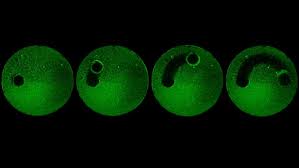
Breaking News
 Rand Paul just revealed he's working with RFK Jr. to prosecute Fauci. But Trump's DOJ is ign
Rand Paul just revealed he's working with RFK Jr. to prosecute Fauci. But Trump's DOJ is ign
 BREAKING EXCLUSIVE: "I Think Bill Gates Is The Boss," Epstein Survivor Claims Gates Was...
BREAKING EXCLUSIVE: "I Think Bill Gates Is The Boss," Epstein Survivor Claims Gates Was...
 Musk Offers Free Starlink As Iran Protests Endure Internet, Comms Blackout
Musk Offers Free Starlink As Iran Protests Endure Internet, Comms Blackout
 South Korea Seeks Death Penalty For Ex-President Yoon's Botched Martial Law Attempt
South Korea Seeks Death Penalty For Ex-President Yoon's Botched Martial Law Attempt
Top Tech News
 Superheat Unveils the H1: A Revolutionary Bitcoin-Mining Water Heater at CES 2026
Superheat Unveils the H1: A Revolutionary Bitcoin-Mining Water Heater at CES 2026
 World's most powerful hypergravity machine is 1,900X stronger than Earth
World's most powerful hypergravity machine is 1,900X stronger than Earth
 New battery idea gets lots of power out of unusual sulfur chemistry
New battery idea gets lots of power out of unusual sulfur chemistry
 Anti-Aging Drug Regrows Knee Cartilage in Major Breakthrough That Could End Knee Replacements
Anti-Aging Drug Regrows Knee Cartilage in Major Breakthrough That Could End Knee Replacements
 Scientists say recent advances in Quantum Entanglement...
Scientists say recent advances in Quantum Entanglement...
 Solid-State Batteries Are In 'Trailblazer' Mode. What's Holding Them Up?
Solid-State Batteries Are In 'Trailblazer' Mode. What's Holding Them Up?
 US Farmers Began Using Chemical Fertilizer After WW2. Comfrey Is a Natural Super Fertilizer
US Farmers Began Using Chemical Fertilizer After WW2. Comfrey Is a Natural Super Fertilizer
 Kawasaki's four-legged robot-horse vehicle is going into production
Kawasaki's four-legged robot-horse vehicle is going into production
 The First Production All-Solid-State Battery Is Here, And It Promises 5-Minute Charging
The First Production All-Solid-State Battery Is Here, And It Promises 5-Minute Charging
The future of dental cleaning? Biofilm-busting micro-robots impress in precision...

An army of tiny robots scuttling about inside your mouth cleaning your teeth. It's a disquieting thought, and yet it might be one of the most effective ways to deal with the sticky bacterial biofilms that coat our choppers – as well as water pipes, catheters and other tough-to-clean items.
Run your tongue around your teeth and enjoy the feeling of the biofilms that are pretty much always coating them. Biofilms are little communities of micro-organisms, bacterial and otherwise, that gather together, sticking their cell walls together and bonding themselves to surfaces in three-dimensional structures, scaffolded together with all sorts of claggy polymers. They've been described as little microbe cities, functioning as tiny co-ordinated communities.
They form all over the place – not just in our mouths as dental plaque, but on your dirty dishes, on rocks, in pipes, surgical equipment, anywhere liquid and microbes meet – and when bacteria gang up in these gloopy films, they can become far more resistant to antibiotics than usual.
And they're tough to break – hence why dentists have to spend so much time scraping away at plaque deposits on your teeth in a fiddly and uncomfortable process that's probably about as much fun for the dentist as it is for the patient.

 Storage doesn't get much cheaper than this
Storage doesn't get much cheaper than this

